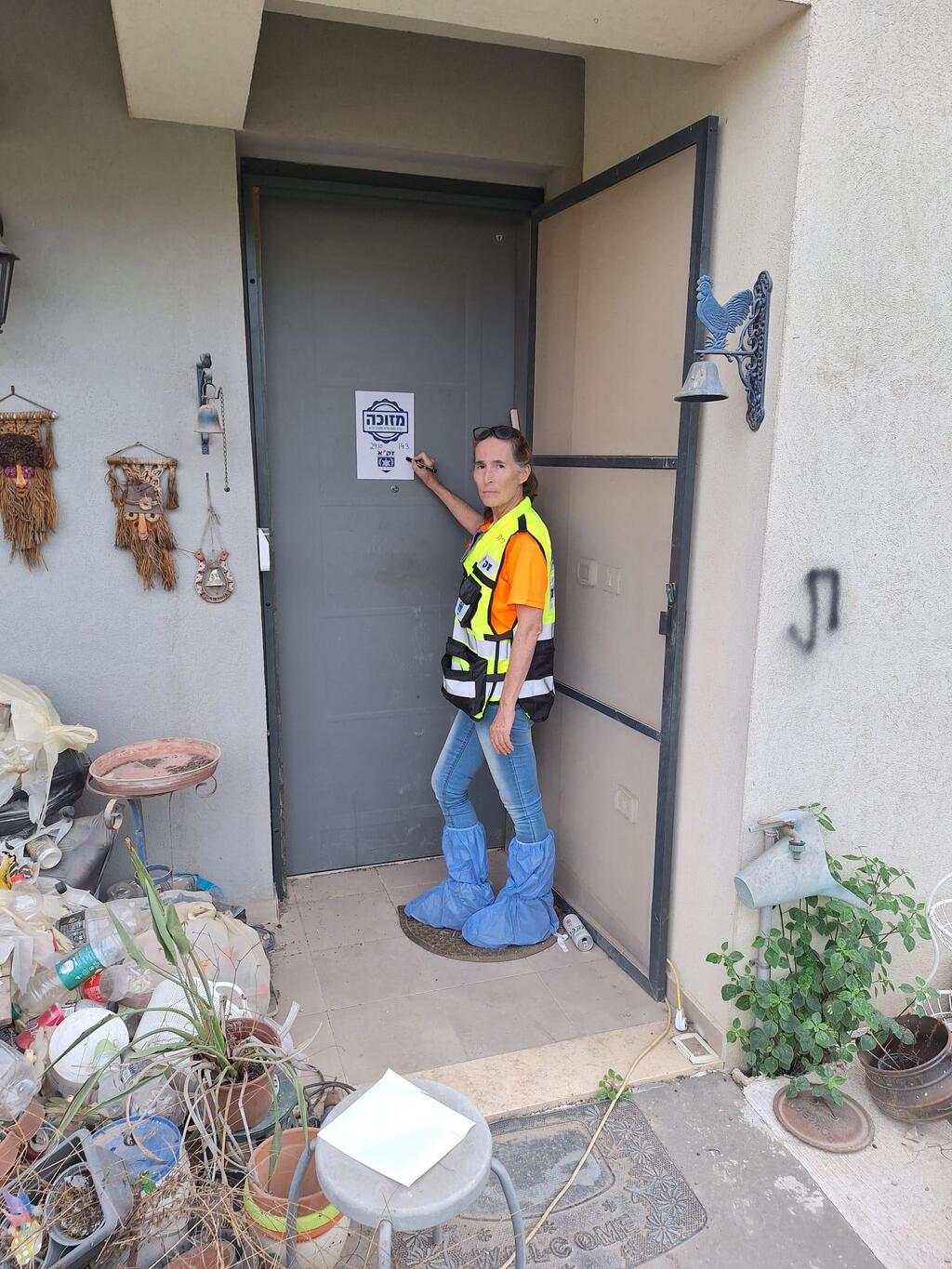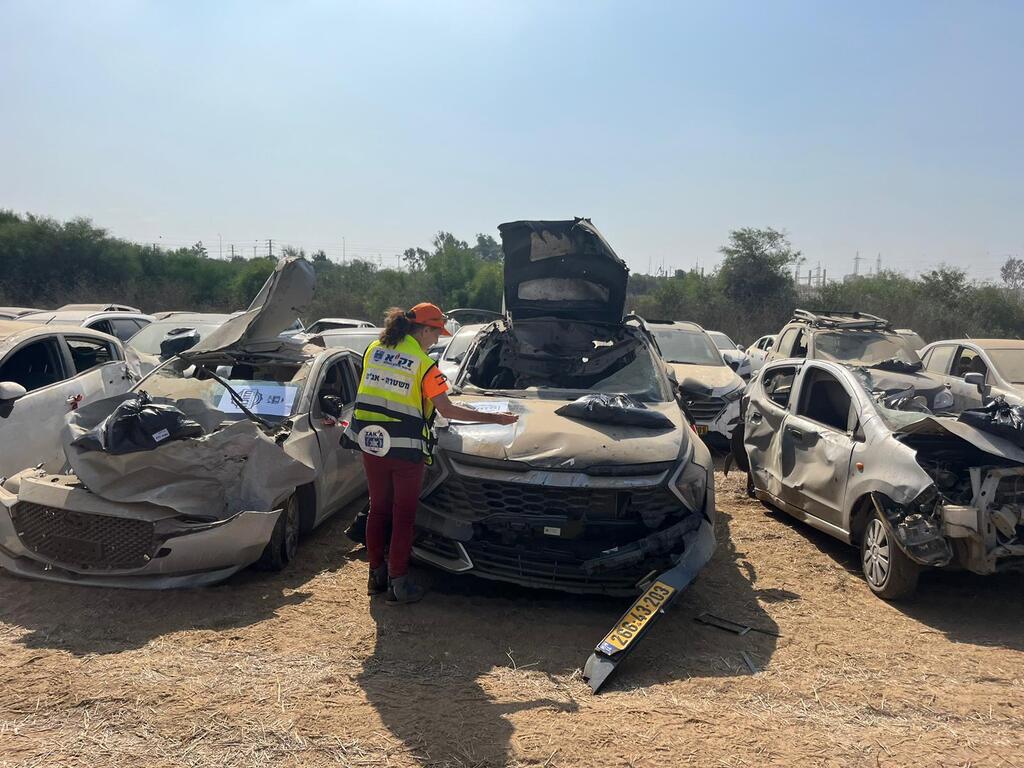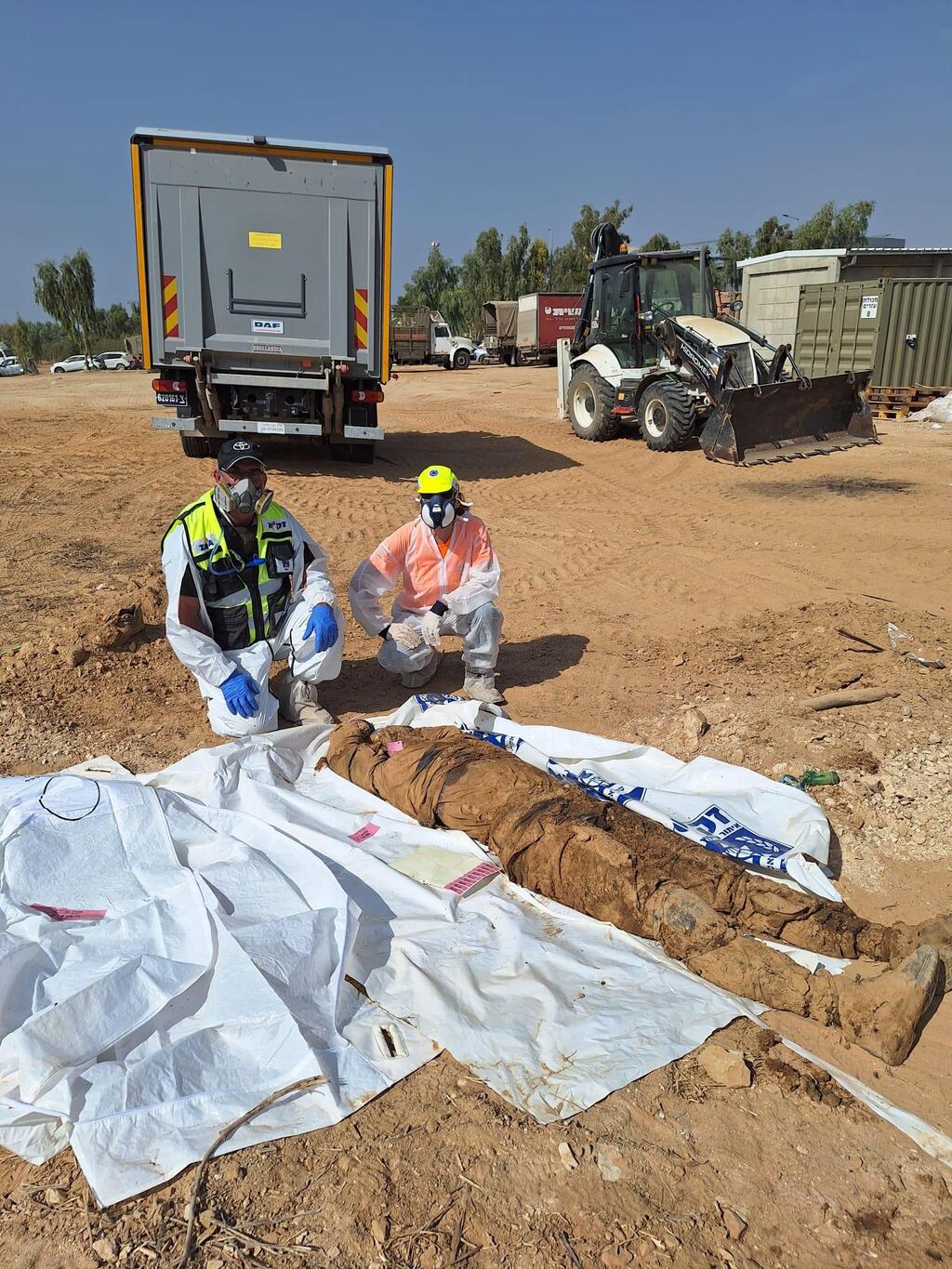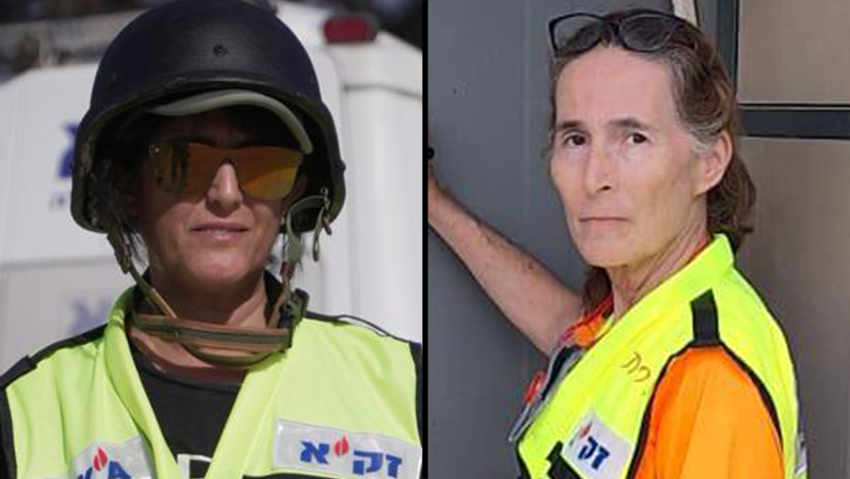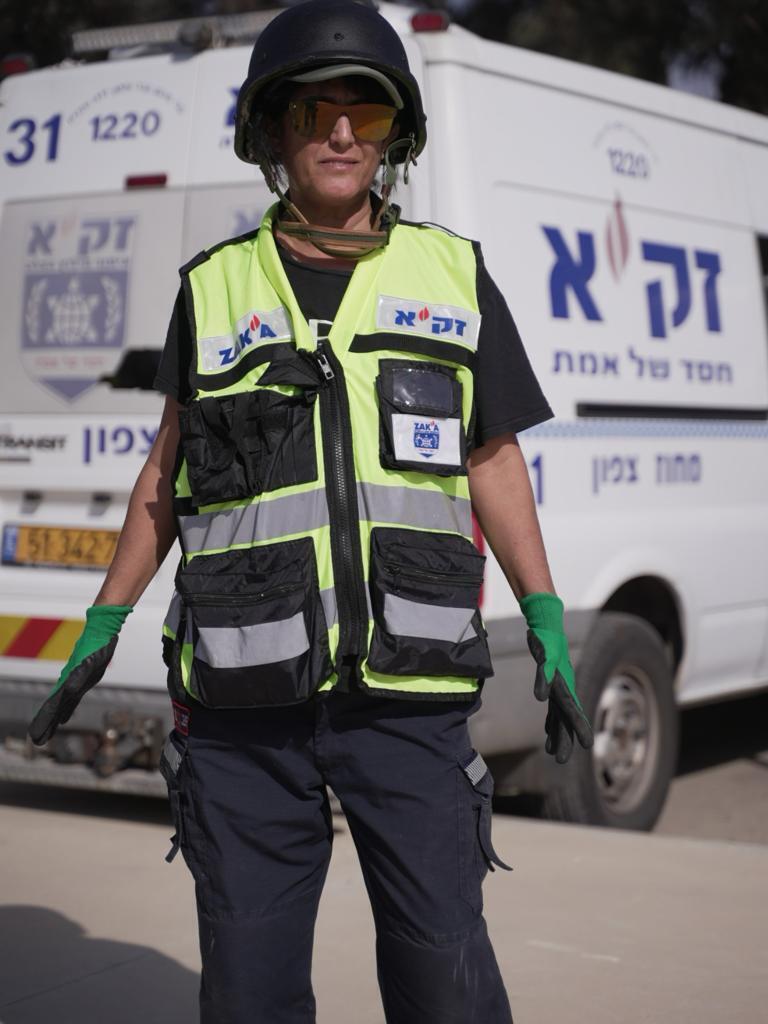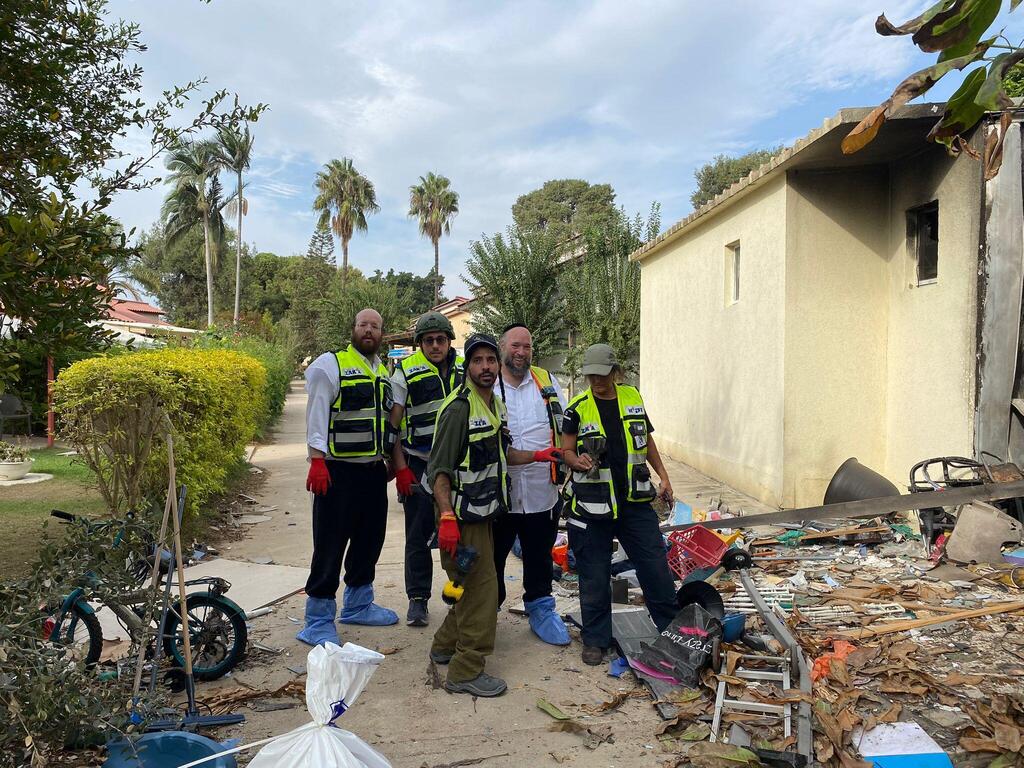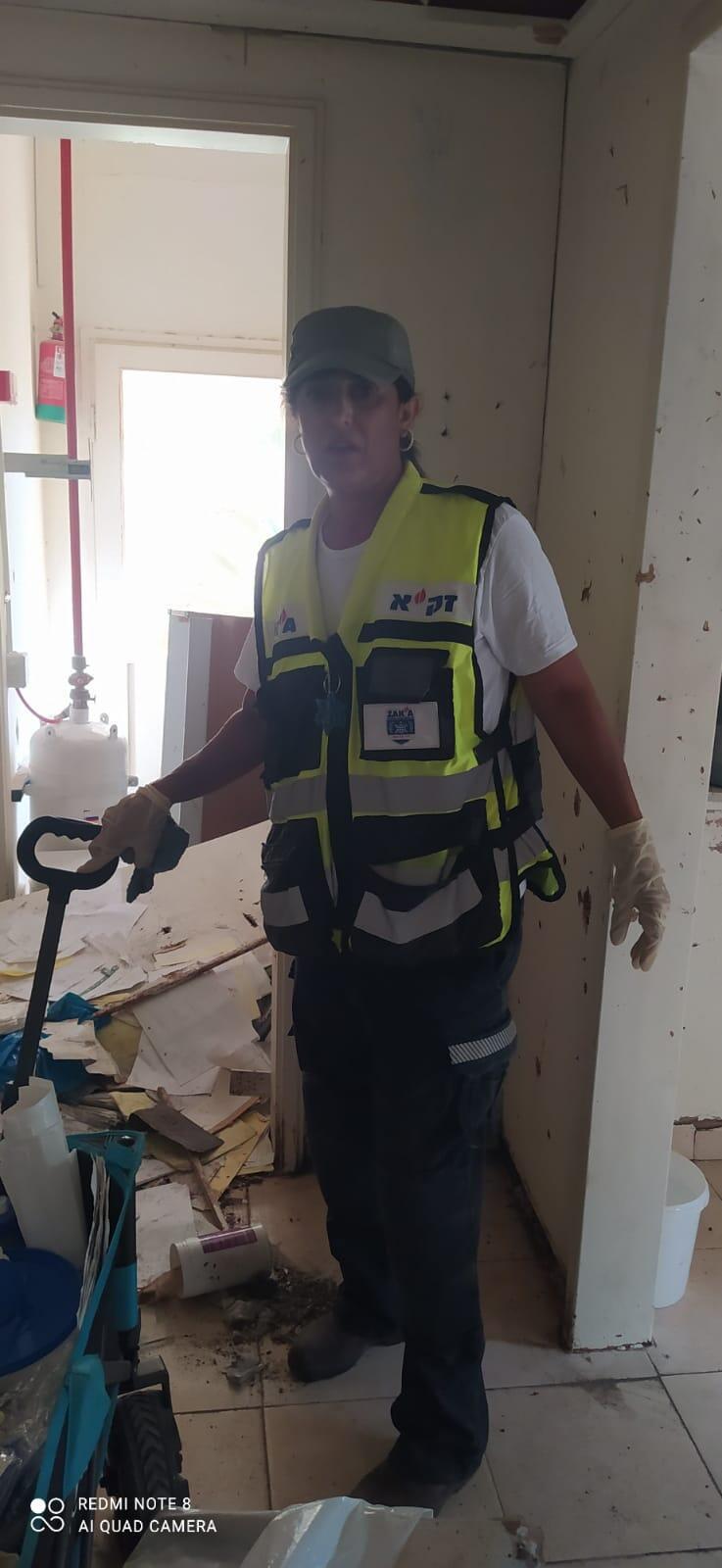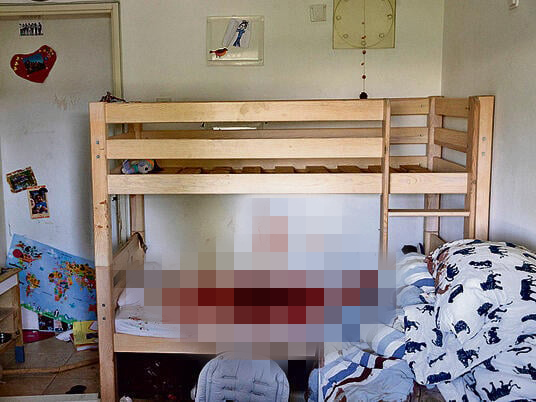Getting your Trinity Audio player ready...
Nurit Cohen goes between houses in the surrounding settlements, diligently removing clotted blood stains and other evidence even in the 'cemetery' of the burnt cars. On other days, when she is not volunteering at ZAKA, Cohen is a diving instructor, and even drives to Eilat with her heavy two-wheeler. She is a resident of Modi'in and belongs to a unique Jewish community. "When I feel like it, I go to synagogue and when I feel like going to the beach, I do it without qualms. It's live and let live without judgment."
Read more:
Cohen, 59, divorced and mother of three, immigrated to Israel from Denmark when she was nine years old. "I immigrated during the Yom Kippur War, I enlisted during the First Lebanon War and now, in the Iron Swords War, my daughter is a fighter in the Search and Rescue unit." Nurit Cohen studied social work and completed two degrees in education. She works with cancer patients and every Friday, she distributes food to less-fortunate persons.
"So how did I end up at ZAKA? I've been a diver since I was 18, and when a friend told me he joined the organization's divers unit, I got fired up and joined. I have to say, they welcomed me warmly and as an equal."
One of her first tasks in the divers unit was to rescue a boy who drowned in the Sea of Galilee. That year the sea claimed the lives of 31 young people and she was there to look for them or their bodies. "I changed my professional direction at ZAKA at the end of the war's second week. I was taken down as part of a team to work around Gaza," she recounts. At this point in time, bodies of residents and terrorists were still found in the area.
"I wrapped a body with all its parts scattered around it, and more than once I also put the body and the head separately in a bag. It was difficult, but I also came to this task with the gift my father gave to each of his four daughters: to be independent and see the other. That's how, with this obligatory baggage, I wrapped. I felt that I was on a national mission, contributing something to Jewish and Zionist values."
Next, she was moved to an are near Re'im, where they held the Nova music festival and many were murdered. "There were no longer any bodies in the field, but we came to witness the mass slaughter that happened there. Everything was upside down, broken cars and gunshots, and contained blood and body parts. The work began when we cleared the cars into two adjacent lots." Hundreds of damaged vehicles remained a silent cenotaph of the massacre.
The ZAKA people thoroughly went through personal belongings in each car, "each one told about the murder that took place and the number of bullets that were fired into it." The blood and the findings found inside and outside were scraped and removed. They were put in a bag and were buried according to the religion.
From the third week, Cohen was assigned to a team to work in the houses in Kfar Aza and Be'eri: "There, too, our job was to look for every scrap of tissue, organ, hair, and to remove the spots of clotted blood that were splashed everywhere." "I noticed a man was dragged by the blood trail. In the shelter that was sprayed with lots of bullets, we literally saw a pool of blood."
House after house, with restrained professionalism, she collected human parts and removed blood stains with a utility knife. "I don't involve emotion in my work and I am completely focused on the privilege that befell upon me, to find something that belongs to someone who lives in the same house and possibly identify more and achieve closure." When you ask her, haven't you done enough? "There are those who donate to the soldiers and those who take care of them with hot food, I am connected to the mission of ZAKA," she says wholeheartedly.
Margalit is also a ZAKA volunteer. "Ten years ago I volunteered for the police and now I'm a part of the patrol unit in Hebron. I am also in the Chevra Kadisha and the Magen David Adom. How does this all work out? Very simple. In my belief, birth and death are the two ends of the circle of life. In the morning, in ZAKA, I can be called to the scene of a person who shot himself and that evening very naturally, I can accompany a birth because everything is a part of life," she said.
Yahad, 58, married and a mother of four, with two of her children in the army. A son who is an officer in the Kfir Brigade, his brother in the Air Force and the son-in-law, an armored officer who is fighting inside Gaza. She lives in Kiryat Arba, works as a welfare worker at the Kiryat Arba Municipal Council, and in her non-existent free time, she is a holistic therapist and a doula.
The spirit of volunteering also passed on to her children and it already happened that the mother and her two sons shared the same ambulance as Magen David Adom volunteers.
From the first day of the war, she was a Magen David Adom ambulance driver and reinforced the Ofakim station. "Later on, I joined ZAKA and I'm still there, purifying houses in Be'eri, Kfar Aza, Nirim and Nir Oz. My work routine is this: I enter the house, two gloves On each hand, in a lab coat, I photograph and document the blood stains and the other findings - tissues, nails, I collect them and they are sent to the rabbinate base and undergo identification. I remove the blood from the walls, from the ceiling, from objects and put it in a bag."
Margalit clarifies: "We are not a cleaning company, but collection teams whose goal is to identify as many findings as possible. For example, I saw a baby's mattress soaked in blood and it was all going to be buried. Stains on toys and objects and on the ceiling. I remove them with a utility knife or putty knife or use electric sanders. We must remember that when we scrape the blood, we are overwhelmed by a terrible smell. But I say to myself, Margalit - you must remove everything, for the benefit of those who may still return to their homes. Therefore, when I finish a house sometimes even after four days of work, I water the plants. I take a hose and water the grass, to connect to the life experience that was in this house, before it became a violent and murderous scene."
Two particularly difficult experiences will accompany her forever. "I entered a house whose children's room was in a shocking state. A bed turned upside down, a baby's pillow full of blood, a baby's suit, toys all stained, immediately the image of the event as it happened came to my mind. Another house that I will never forget is that of an elderly woman, who was sitting on an armchair. She fell asleep watching TV, two remotes in her hand. The whole house remained clean and intact, it was not touched, but she was shot from outside and killed."
The memories of the job flood her when she comes home: "After scanning and cleaning and collecting belongings from 300 cars, I got home one evening, and as I parked, a neighbor was just opening the trunk of her car. I was alarmed and suddenly jumped, it was terrifying. When I get home, before 'Hello, how are you?' I rush to the shower and scrubbed thoroughly. Despite that, I smelled death until the next day."
Moti Bokchin, ZAKA's spokesperson, said that "ZAKA has made kindness its mission in Israel and around the world. What makes the organization unique is that the volunteers come from different sectors, and this is how over the years we have created an amazing mosaic of volunteers of all kinds creating The Israeli Rainbow".



